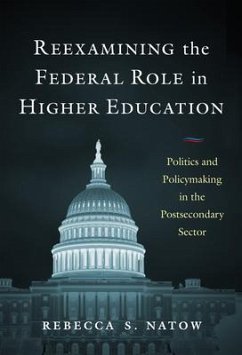
The Oxford Encyclopedia of School Reform
Versandkostenfrei!
Versandfertig in über 4 Wochen
405,99 €
inkl. MwSt.

PAYBACK Punkte
203 °P sammeln!
The Oxford Encyclopedia of School Reform is a major new work that covers a wide array of school reform strategies from several geographical regions around the world. The major theme that runs through the Encyclopedia is both the successes and failures of reform efforts, and the detailed analyses offered throughout the text have a unique potential to guide future reforms. The Oxford Encyclopedia of School Reform will be required reading for researchers, practitioners, and policymakers interested in improving outcomes for learners.












